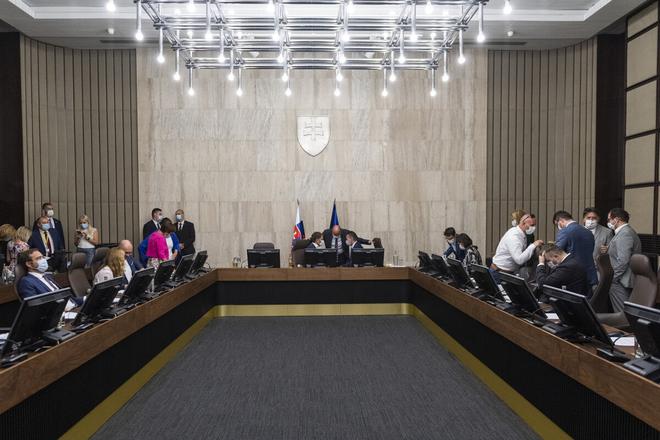The rules for declaring and prolonging the national emergency should change.
Our paywall policy:
The Slovak Spectator has decided to make all the articles on the special measures, statistics and basic information about the coronavirus available to everyone. If you appreciate our work and would like to support good journalism, please buy our subscription. We believe this is an issue where accurate and fact-based information is important for people to cope.
Currently, it is possible to declare the emergency for 90 days. However, the cabinet approved a proposal enabling its repeated prolonging for no more than 40 days at its December 7 session. Every decision on prolonging the national emergency will have to be approved by the parliament within 20 days after the national emergency is prolonged.
The respective legislation needs to be approved by the MPs, who will discuss it in a fast-track proceeding, the TASR newswire reported.
“The aim is to create a constitutional safeguard within the distribution of power and the system of brakes and balances in parliamentary democracy,” the cabinet explained, as quoted by TASR, adding that a similar safeguard should be applied when the national emergency is again declared.
Restrictions to be changed, too
The cabinet proposes setting the restrictions and duties for national emergency declared for a reason other than the threat to life and health due to the pandemic.
The limitations of the untouchability of a person, his/her privacy and the limitations to the freedom of movement and residence should also change. The government wants the change to enable the adoption of effective measures reducing mobility, and thus slow down the spread of an infectious disease, TASR reported.
At the same time, the cabinet approved the draft amendment to the law on the Constitutional Court, with the aim of enabling the court to check the constitutionality of the decision to prolong the national emergency.
Parliament as safeguard
The currently declared national emergency, which among other things enables moving healthcare workers or materials between medical and social facilities, ends by December 29.
“To avoid the threat or weaker operation of medical facilities and nursing homes, it’s necessary for the cabinet and then the parliament to discuss the possibility of prolonging the national emergency,” said Štefan Holý (Sme Rodina), deputy PM for legislation and strategic planning, as quoted by TASR.
Justice Minister Mária Kolíková (Za Ľudí) pointed to the importance of having a foreseeable legal state. To avoid the potential exploitation of the principle, the decision on prolonging the national emergency will have to be approved by the parliament, she explained.
Non-affiliated MPs around ex-PM Peter Pellegrini disagree with the proposed changes, and want to submit an amending proposal to the parliament, proposing that the president should agree with decisions adopted by the government during the national emergency, TASR reported.
They also criticise the safeguard, according to which parliament will have to approve the prolongation of the national emergency retrospectively.




